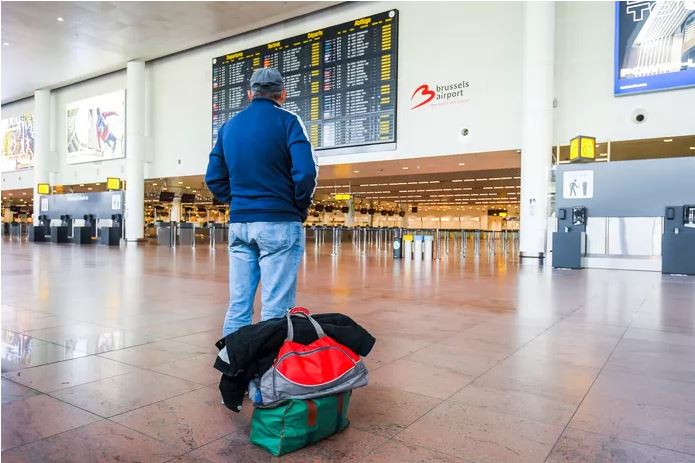Despite the high vaccination rates in many European countries and a boost for the travel industry during the summer months, travel activity is not expected to return to pre-pandemic levels until 2024.
Successful vaccine programmes should make it possible to further ease travel restrictions and facilitate travel in 2022. However, a full recovery will take longer, according to the European Travel Commission (ETC)’s latest edition of the European Tourism Trends & Prospects, which monitors the continued impact of the COVID-19 pandemic.
"European tourism recovery seems to be underway but there is still a long road ahead," Jennifer Iduh from ETC's Executive Unit stated in the report.
"As travel volumes return, the easing of restrictions for non-EU markets and the recognition of non-EMA recognised COVID-19 vaccines are ways in which tourism recovery could be further accelerated," she added.
The report found that the creation of the EU Digital Covid-19 Certificate, introduced at the beginning of July to facilitate travel within the European Union, was fundamental to ensuring safe travel across the region and helped to simplify the process of cross-border travel.
As a result, all reporting European destinations enjoyed higher levels of hotel occupancy this summer compared to 2020, based on data for July-September.
Related News
- First Brussels Airlines flight to New York was fully booked
- US discourages travel to Belgium amid rising cases
- Stricter rules for autumn break: these are the measures in the rest of Europe
But by the end of 2021, which so far was considered a more positive year for the sector, international tourist arrivals to Europe are still forecast to be 60% below 2019.
Even during the peak summer months, which saw a relative improvement mainly driven by domestic air travel demand, European tourist arrivals were still down 77% relative to 2019.
Meanwhile, overseas travel is expected to take the longest to bounce back "weighing heavily on those destinations strongly reliant on long-haul source markets."
For example, US arrivals in Europe remain 90% below their 2019 levels for one-third of reporting destinations, despite many countries easing entry restrictions on vaccinated Americans.
Confusing approaches and changing measures
A slight slowdown in domestic travel activity is expected in the coming months, as anxieties related to winter flu seasons and Covid-19 cases rise across Europe due to the rampant Delta variant will lead to more "cautious travel behaviour and a potential tightening of restrictions."
"As the winter months approach, it is imperative that Europe strives to further restore the freedom of movement by implementing more holistic and coherent approaches for travel within and outside the EU," Luís Araújo, ETC’s President, said.
The ETC stated that the ever-changing COVID-19 restrictions and policies, renewed outbreaks and the confusion around the colour-coded EU travel system applied differently across European destinations will continue to impact destinations heavily reliant on long-haul travel.

